The fourth episode of the Indonesian mystery show ‘Joko Anwar’s Nightmares and Daydreams’ transports the viewers to a different time as the narrative delves into the life of an unassuming fisherman living in Jakarta in 1985. The story’s protagonist, Wahyu, lives with his wife in a fisherman’s village. The pair work day and night to collect enough funds to travel and locate the man’s mother, who abandoned him as a child. Meanwhile, matters grow heavy in the village as the community faces the possibility of eviction from their land. As such, a bright light shines upon Wahyu and the village’s fate when the former finds himself encountering an angel in the night sky. However, emotions of envy, hostility, and betrayal threaten to lay ruin to a promising future. SPOILERS AHEAD!
Wahyu’s Demure Life and The Angel’s Visit
Wahyu leads a quiet life in his small fisherman’s village, satisfied to remain unbothered by other people’s business. Instead, the man only focuses on his success and, in turn, earns the fair fruits of his dedicated labor. However, the same attracts the petulant spite of some others, especially Rusman, who accuses the other man of being selfish. The latter, himself, prefers to stand up for his community and routinely deals with thugs sent to destroy their village to force their eviction. Meanwhile, Wahyuh keeps his eye on the ultimate prize: a trip to Saudi Arabia.
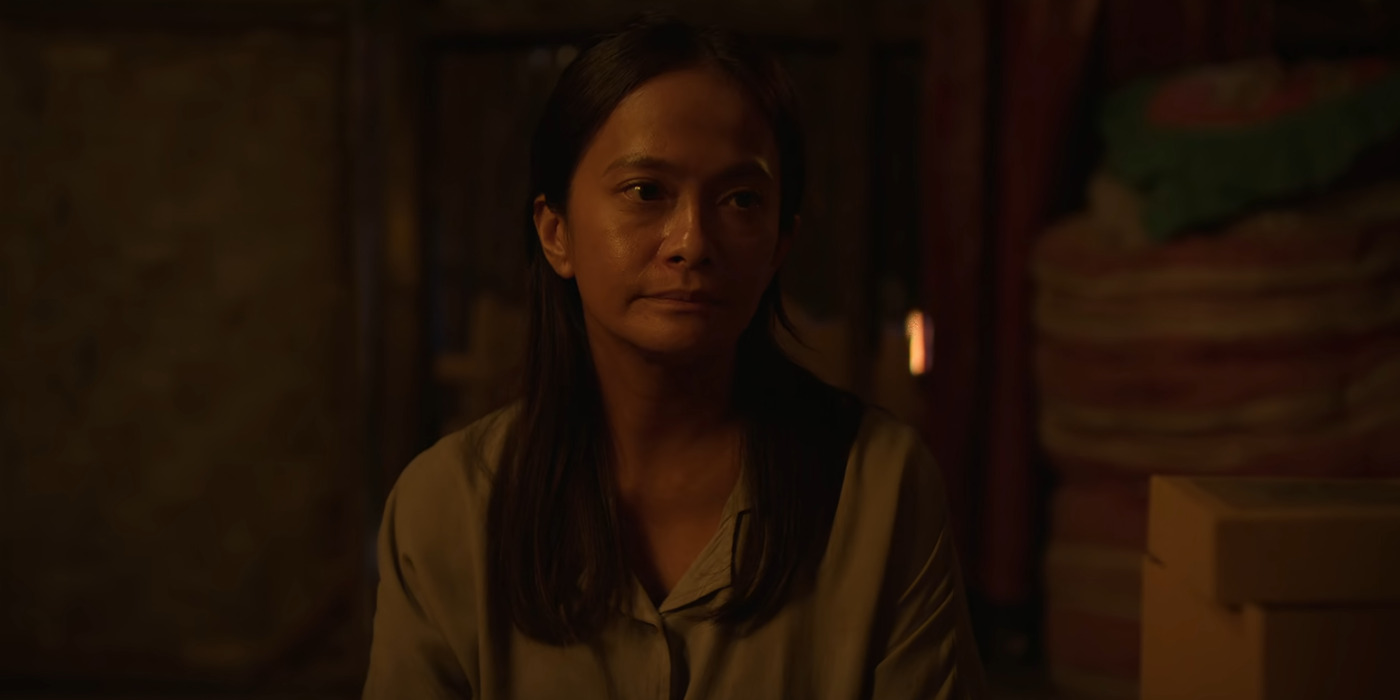
At seven years old, Wahyu’s mother abandoned him and traveled to Saudi Arabia with no sign of return. Even though his wife, Dijah, tries to make him see that there’s a chance his mother might not still be alive— or simply hold no interest in seeing him— her husband refuses to give up on his dreams. Therefore, he continues quietly working, nearing his financial goal to allow him and his wife to spend at least a week in the Middle Eastern land. However, one night, a cosmic power drastically changes the hardworking fisherman’s life.
While the villagers spend their night at the square watching a movie together, Wahyu ventures out to the sea to get a headstart on collecting shellfish despite the storm brewing on the horizon. During the same, he encounters a blinding white light in the sky that looks like a floating angel. Thinking on his feet, Wahyu snaps a photo of the scene on a Polaroid camera his wife won at the factory and rushes home in cold, terrifying awe. Shortly afterward, he shares the story of his encounter with Dijah and the rest of the village.
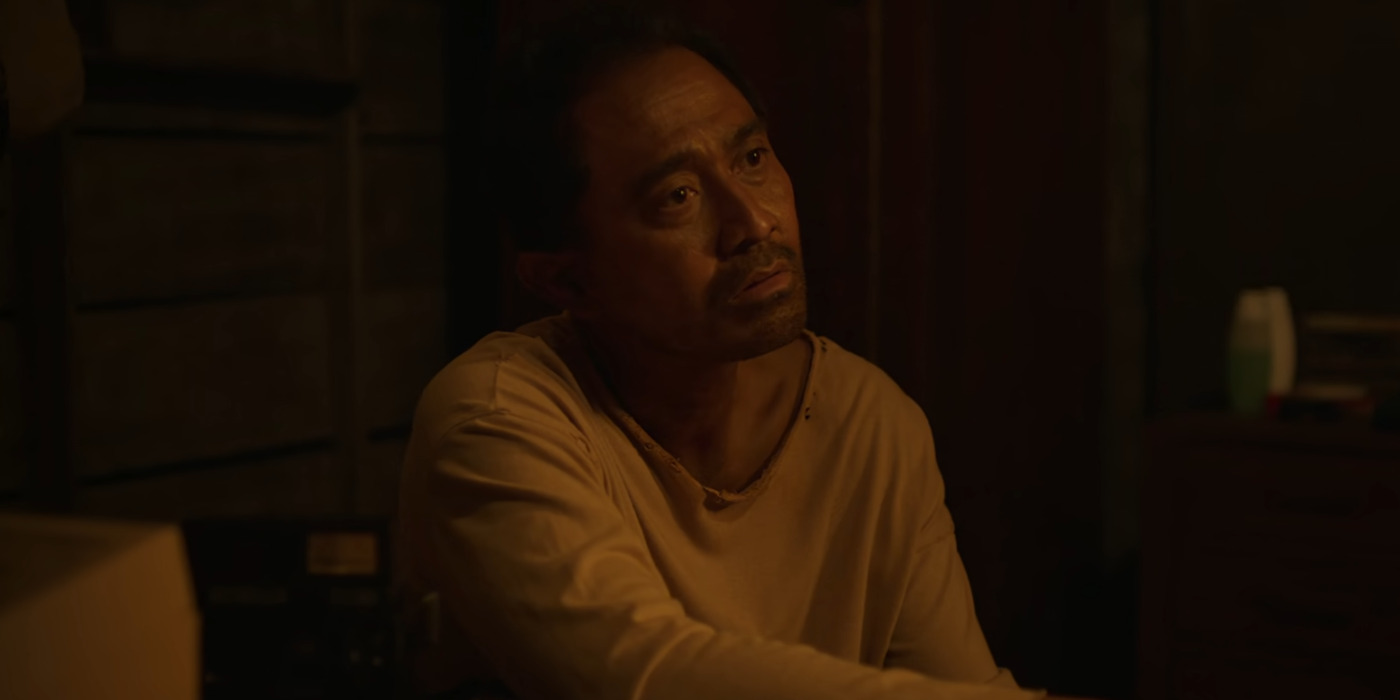
Although Rusman is woe to believe his announced rival’s word, almost everyone else starts believing Wahyu has been chosen by God to guide them out of their time of peril. The fisherman in question attempts to dispel the belief to no avail. Even after the presumed angel’s visit, Wahyuh is only concerned with finding his mother and doesn’t wish to bear the weight of the messiahship the angel’s photograph thrusts upon him. Nonetheless, the villagers attempt to use him and his angel’s photograph to battle the government’s ploy for their eviction.
Meanwhile, Dijan becomes paranoid that her husband’s newfound connection with the heavens may have bestowed him with mind-reading powers that he could use to discover her extramarital affair. For the same reason, one morning, Dijah runs away with her lover after stealing all of Wahyu’s life savings. Crestfallen, the man is forced to face the idea that he may never see his mother again before another avenue opens as a journalist offers Wayhu a lucrative amount for his angel photograph. The same invites Rusman’s ire since his own attempts at saving the village have put a target on his back. Thus, the picture presumed to have captured an angel becomes the most coveted item in the community.
Is The Angel Real? Why Did They Choose Wahyu?
Wayhu leads a mundane life as a fisherman who seems to have carved out a small and comfortable place for himself in his world. He doesn’t listen to his community’s gossip, dedicates himself to his work, and looks after his neighbors when needed. For the same reason, many— such as Rusman— assume his existence is nothing significant and even pathetic. Therefore, one may wonder why, if an angel did visit the village, they would choose Wahyu as their witness.
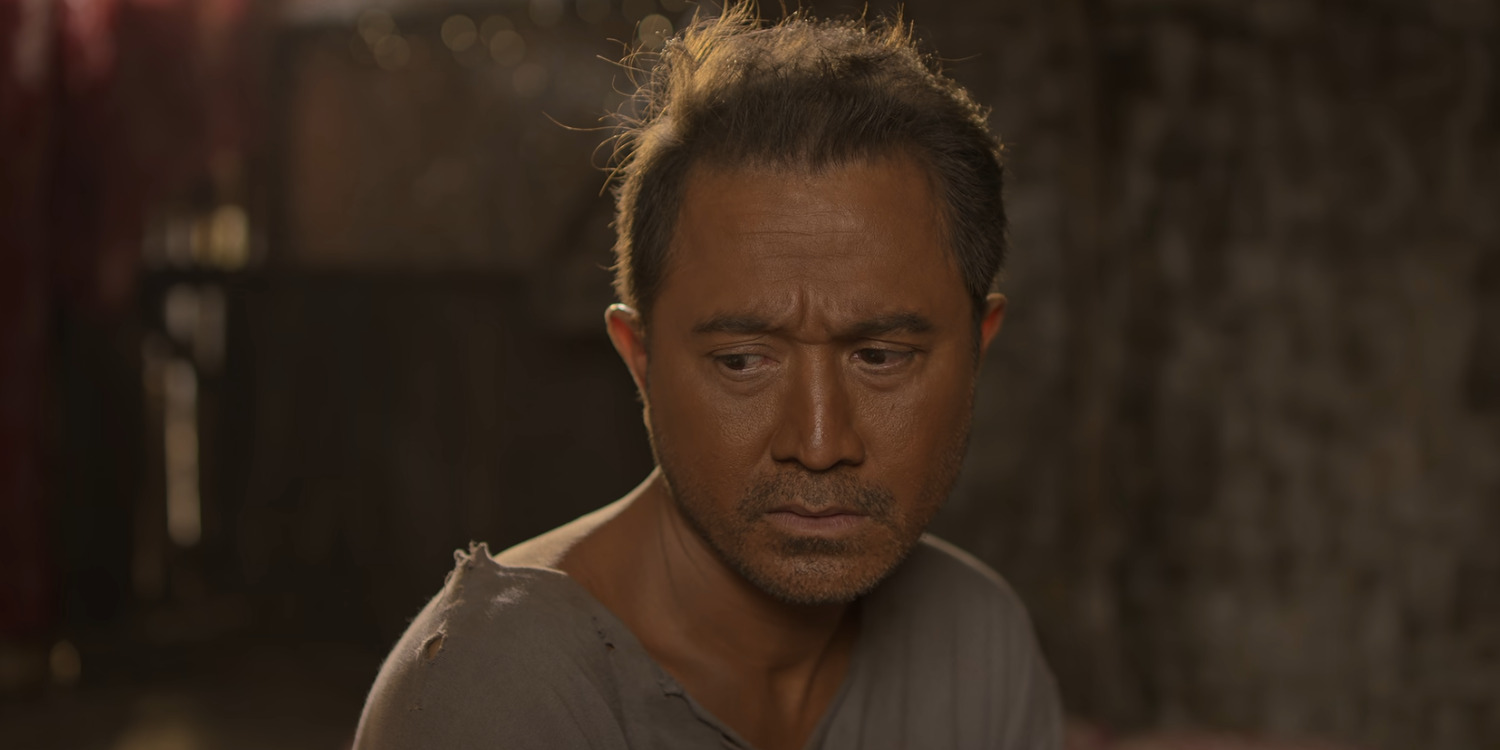
Consequently, the angel’s existence comes under questioning, compelling people to wonder if Wahyu simply came across some inexplicable phenomenon that he misconstrued as a visit from an angel. Nonetheless, the details of his encounter scarcely seem to matter to most characters. Around the village, everyone sees an opportunity within the encounter. The majority of the village wants to utilize the angel’s photograph as a way to save their community from being evicted from their ancestral land. Inversely, Rusman— who has thanklessly fought for his community to the point of putting himself and his wife in danger— wants to steal the photograph to reap its monetary benefits.
Therefore, after Rusman ruthlessly storms Wahyu’s house, ransacking it in search of the photograph, the latter decides to ruin the Polaroid image by storing it underneath the heated wok. While everyone else is desperate to benefit from the image, Wahyu remains the only one who doesn’t seek additional advantages from his sacred visit. Even though the man recognizes that an angel has visited him, he doesn’t wish to turn the encounter into a pathway for riches or influence. Instead, he simply carries the same desire he has had since he was seven— to meet his mother again. Furthermore, he’s content to rely on his own merit to collect the funds even in a dire situation. Therein lies the reason the angel chose him out of everyone in the village.
Unlike others, Wahyu remains pure of intent with no desire to abuse or corrupt any power sent his way. The same proves true when the angel graces him with her presence again after Rusman’s cruel words about his mother’s abandonment have left the former devastated. For this visit, the angel pulls the fisherman into her realm and arrives in the form of his mother to blanket him in familiarity. After Rusman tears up Wahyu’s photograph of his mother, the man is forced to let go of his last selfish desire. Once he embraces the fact that he would likely never see his mother again due to her abandonment, the last thread connecting him to the potential for corruption disappears.
The angel has always known Wahyu as a selfless man who only wishes to lead a simple life. Therefore, once his last connection to the mortal realm disappears, she grants him heavenly wisdom and knowledge of the past, present, and future. Although the angel’s intentions remain obscure, she must want Wahyu to use his powers to fight for good, considering his clean character granted him her presence. Thus, in the end, Wahyu’s mundane existence becomes the precise reason for his heavenly favor.
Do the Villagers Get Evicted From the Land?
While Wahyu undergoes a heavenly visit from the angel, a drastically different experience unfolds for his fellow fishermen as the military police raid the community. Since big corporations want ownership over the small villagers’ land, they have been attempting to expel communities from villages for a long time. Nevertheless, despite the villagers’ fight, the corporations possess resources and influence that far outweigh anything a fishing community can afford. Consequently, once things come to a head, the corporations equip the police’s help to wage war on Wahyu’s village.
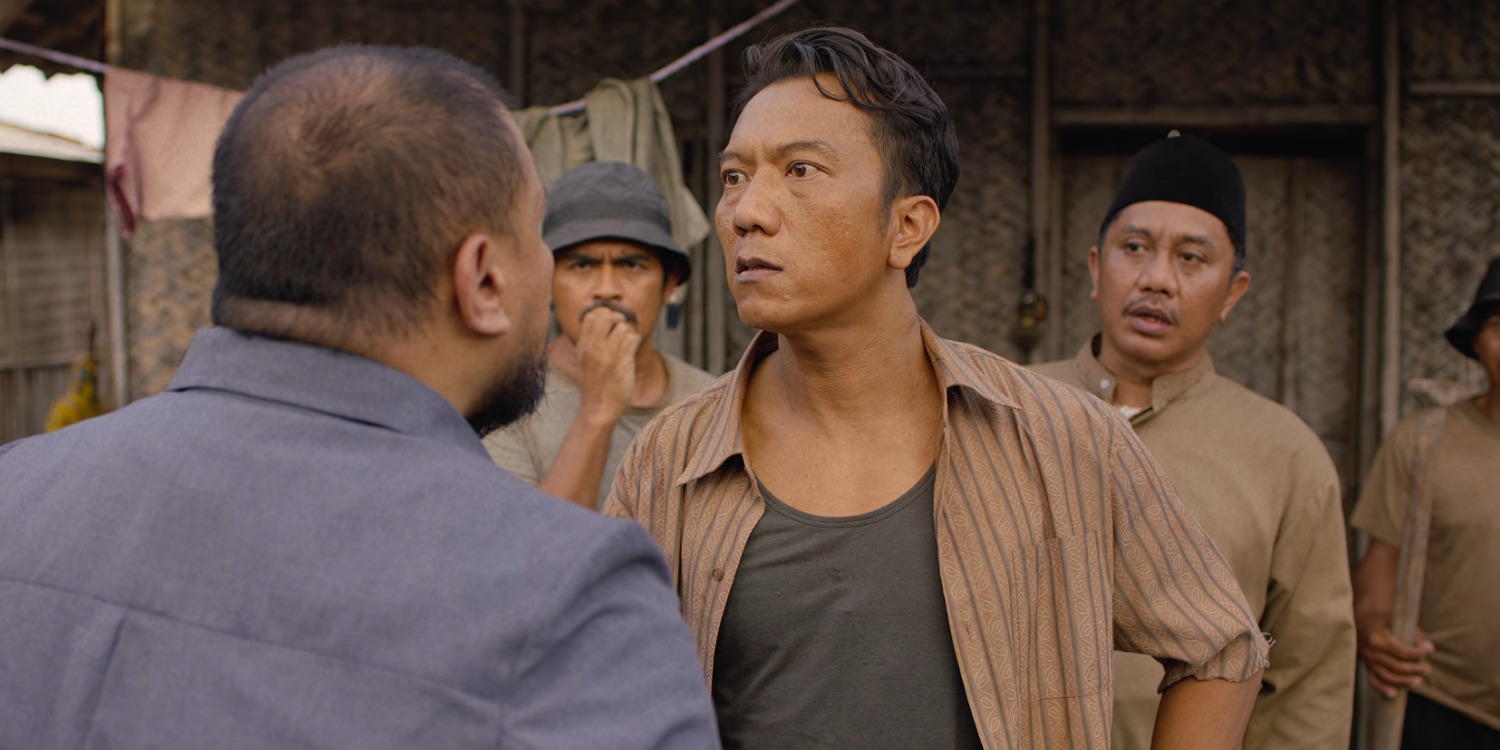
In turn, the villagers take up torches and whatever makeshift weaponry they can manage to face their adversaries. Although they had hoped Wahyu’s connection to the angel would guide them to a better result, they lost faith in him after he confessed to faking the photograph. Nonetheless, he only makes the confession to end the chaos in his life that the photograph had brought. Wahyu isn’t opposed to helping his people stake their claim on their land. Instead, he simply never believed he could help them reach the same goal. He allowed Rusman to defame him with a ruse for the same reason.
However, after the angel’s second visit, wherein she grants knowledge and power to Wahyu, it transforms the fisherman’s beliefs about himself and the world around him. As such, he rushes out to the village to stop the battle between the two groups— the police and the villagers— before their ill-matched forces collide. Ultimately, Wahyu’s abrupt and passionate appearance, calling for both parties to stop, activates his newfound abilities, and he starts floating in the air. The imagery— of the fishermen previously believed to be a messiah floating in the air stops the brewing conflict in its tracks and compels the villagers to fall to their knees. Although the story ends there, Wahyu is likely able to rescue his community through the heavenly knowledge that he has recently gained.
Read More: Nightmares and Daydreams Episode 2 “Orphans” Ending Explained

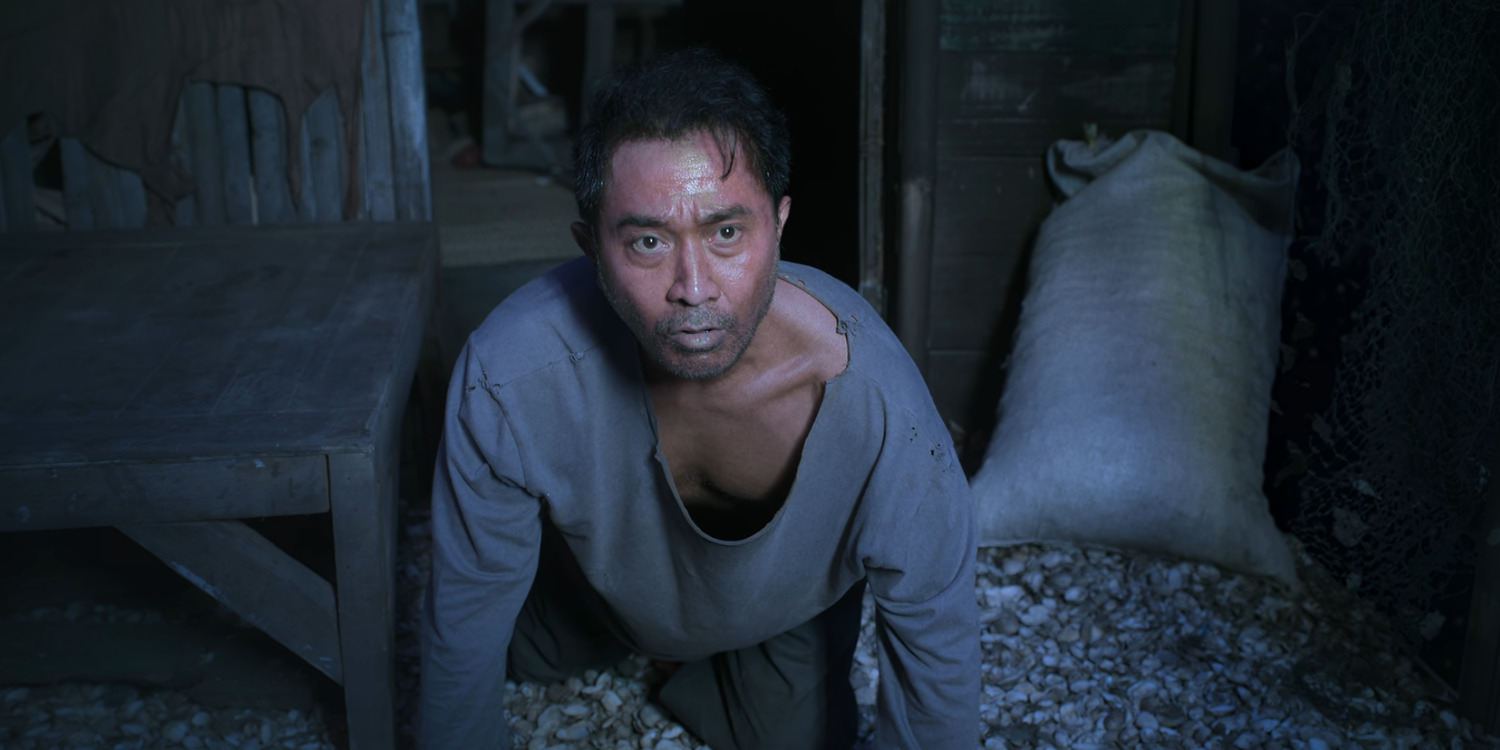
You must be logged in to post a comment.